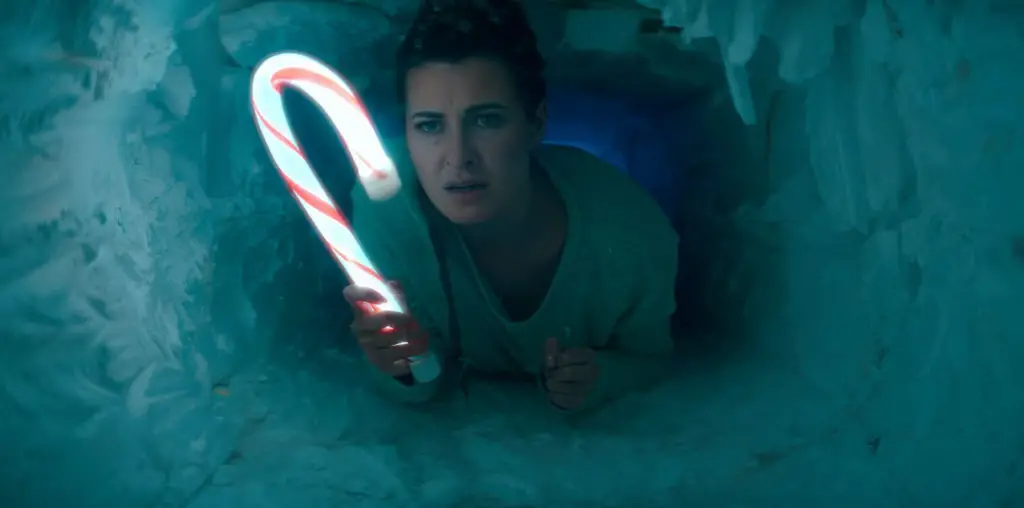
“Cold Mountain” is the story of one man’s return to a woman that he loves but hardly knows. Losing grasp of his humanity through the gory trenches of the Civil War, this broken soldier is also plagued with doubt. Will the love of his life accept him, now that brutality and loss have hardened his soul? Is their love even genuine, or was it merely a shallow, naive flirtation?
As Inman, Jude Law anchors Anthony Minghella’s rousing, colossal “Cold Mountain” with an intense star presence. Meanwhile, moments of greatness crackle around the lead actor like artillery spraying from a Gatling gun. We’re thrown into the warm winds of exploding gunpowder stockpiles, shackled to a chain of captured confederate deserters, and sheltered on farms tended to by women whose enlisted husbands and sons have taken on the Yankees.
“Cold Mountain” opens during a white-knuckle scrimmage between Northern and Confederate troops at St. Petersburg, Virginia. It’s 1864, in the heat of July. Defending a massive, walled fortress with assorted young men decked out in caps, boots, and suspenders, Inman survives a flaming hell of blood, mud, tattered flags, and bayoneted bellies. Minghella shows us the simultaneous division and diversity that defined the Civil War, in a striking scene where enemy Cherokee and African American soldiers stand off, each stopping for a minute to acknowledge the other’s unique ethnicity in this field of white skin, before resuming their violence unto one another.
Later, we watch a barely teenage serviceman dying in a fly-infested infirmary, begging a fiddler to “play something sweet – like a girl that’s waiting for me.” Observing such misery, Inman can relate. In the quiet North Carolina homestead called Cold Mountain, a prewar sweetheart named Ada (Nicole Kidman) is awaiting his return. “If you are fighting,” she pleads in a letter, “stop fighting. If you are marching, stop marching. Come back to me is my request.”
Ada isn’t kidding around. With winter setting in and her minister father suddenly passing away, this privileged Southern Belle could use some help around the family farm that is quickly slipping out of her soft, inexperienced hands. Meanwhile, a menacing band of Home Guard outcasts led by Teague (Ray Winstone) are muscling in to take over Cold Mountain.
Ada’s fortunes improve considerably when a plucky, practical tomboy named Ruby (Renee Zelwegger) moves in. “Ain’t no man better than me,” this energetic firecracker proclaims. After snapping the neck of a bullying rooster and dumping the foul fowl into a pot, Ruby uses her earthy common sense to engineer the farm back to a productive state. Meanwhile, she teaches the more refined Ada how to live off the land. “This is the first thing I’ve done that might produce an actual result,” admits Kidman’s pampered priss as the two women mend a fence.
As taxing as Ruby Boot Camp proves to be, it’s nowhere near as gut-wrenching as the odyssey that Inman endures after deserting his troops to reunite with Ada. The terror of nursing a sick infant whose father will not return from battle is conveyed by Natalie Portman, playing a lonely widow offering room and board to Law’s fatigued wanderer. Inman’s loyalty to Ada is also tested as he takes sanctuary in a house of hard-up women. “Ride me all the way to China,” urges a naked temptress as she bends over the cabin dinner table.
As he did with “The English Patient,” director Minghella performs a miraculous juggling act, balancing his epic, sweeping story with the subtleties of character and detail that make “Cold Mountain” breathe. We feel the unsettled tension seething inside of Inman, as he ponders whether Ada will even recognize his weathered skin, let alone accept him as her soul mate. Comedy relief is embodied by Philip Seymour Hoffman as a disgraced, lusty clergyman, and a similar lightness shines forth courtesy Brendan Gleeson as Ruby’s cheerful, fiddle-toting father. Even minor supporting roles such as Charlie Hunnam as a villainous, acrobatic albino flavor this cinematic potion with added vitality and depth.
Like Martin Scorsese’s Gangs of New York, “Cold Mountain” unveils a particularly violent chapter in U.S. history, and finds a million passionate stories inked out across its muddy, blood-soaked pages. Unlike, say, “Pearl Harbor,” a two-hour commercial posing as a film, Minghella’s movie brings its huge army of characters to life and prioritizes their plights over action spectacle. We feel for Inman
and Ada, making the explosions and gunfire that surround these two
lovers even more jolting.
Disagree with this review? Think you can write a better one? Go right ahead in Film Threat’s BACK TALK section! Click here>>>
